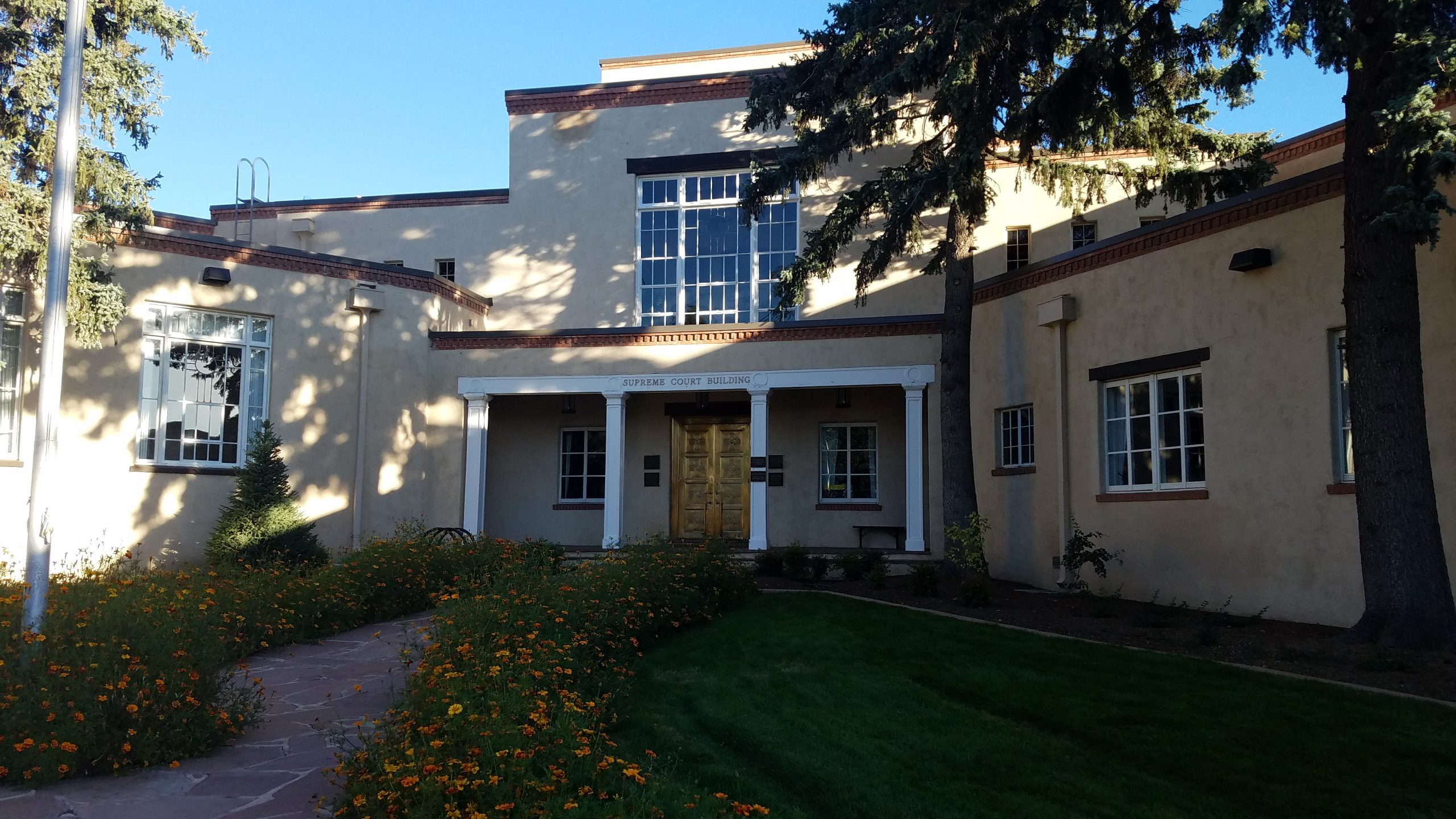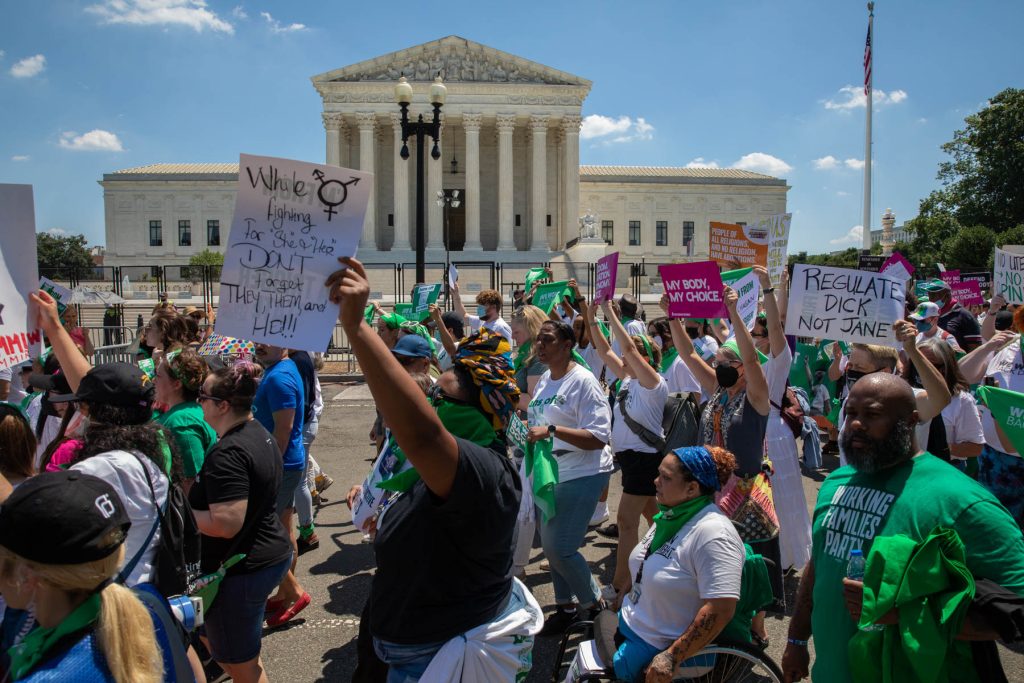The New Mexico Supreme Court decided Tuesday that Gov. Michelle Lujan Grisham’s office has the power to implement fines against businesses that do not follow the state’s emergency health orders.
“The court has concluded that the Legislature has clearly given the governor that authority,” New Mexico Supreme Court Chief Justice Michael Vigil said.
Vigil added that the court will issue a written opinion “as quickly as [the court] can get it out.”
The state’s high court heard oral arguments Tuesday morning from the governor’s attorney Matthew Garcia and from Carter Harrison IV, who argued on behalf of about a dozen businesses and business owners.
The state supreme court case started as an eastern New Mexico state court case where the group of business owners asked a judge to stop the state from imposing fines for not following public health orders.
Garcia argued that under the state’s Public Health Emergency Response Act (PHERA), the governor has the power to implement fines or other punishments during a public health emergency and that the Legislature knowingly gave that power to the executive branch.
“The closure of businesses, and the regulation of gatherings is expressly provided for by the Public Health Act,” Garcia said. “So presumably, the Legislature has contemplated the due process concerns attendant to that legislative directive already.”
Garcia added that if the court were to decide the governor does not have the authority to impose fines on businesses, other orders would be impacted as well.
“There are a number of public health orders that are critical to maintaining and ensuring public welfare, that also are going to fall under the scope of this court’s decision today,” Garcia said. “And I think that bears considering as we go forward.”
But Harrison argued that the governor’s office erroneously conflated powers given to the state Department of Health in other statutes with PHERA.
He said the “actual statute that is the tip of the spear” is the enforcement provision of PHERA.
“It is true that [the enforcement section of PHERA] clarifies that PHERA violations, i.e. violations of that act, can also be punished under other statutes, but that’s a one-way door,” Harrison said. “That doesn’t mean that violations of some other randomly selected statute or some other statute with a similar general purpose, can also be punished under PHERA.”
Harrison was referencing current penalties for not following the state’s public health order. The state’s Public Health Act, which, besides outlining the powers of the state’s Department of Health, outlines penalties for violating provisions of the act. Under state law, any violations of the Public Health Act constitutes a misdemeanor that comes with a $100 fine and up to six months in jail. Violation of PHERA, on the other hand, can include a $5,000 civil fine.
Garcia said, in practice, the penalties for violating public health orders start with a warning, then a $100 fine and misdemeanor charge. The third violation, Garcia said, is a $5,000 administrative fine.
Chief Justice Vigil raised questions about how the two statutes are applied together.
“You’re beginning with the criminal sanction and then graduating from there to a civil administrative penalty and that seems to me, counterintuitive,” Vigil said.
Garcia countered that “what experience has shown” is that businesses who violate the public health order are more “responsive to the threat” of a $5,000 administrative fee than a $100 criminal penalty.
“We need immediate compliance. We can’t say, ‘Well hopefully you’ll comply, two months down the road,’” Garcia said. “We need compliance now. And so that is why the system we have is in place.”
House Minority Leader Jim Townsend, R-Artesia, slammed the ruling in a statement Tuesday afternoon.
“With today’s ruling, the Supreme Court has effectively undermined the Legislature’s authority,” Townsend said. “The court has just given the Governor unfettered power to create law during a health crisis. Nowhere in the statute does is say the Governor can fine businesses $5,000 a day for staying open during a public health emergency, yet the court disagreed. The people of New Mexico should be very worried by what transpired today.”
Garcia also, both in his initial filing and in his oral arguments, raised the issue of whether the state is on the hook to compensate businesses after ordering them to shut down. That issue was not part of the initial suit brought by the business owners. But Garcia argued that in the name of conserving time and “judicial resources” the state Supreme Court should address the issue. Currently, Albuquerque-based attorney Blair Dunn is representing a handful of business owners who claim the state owes them money for essentially eliminating portions of their business.
“Undoubtedly, the court will have to address this issue again at some point, and so it makes sense now to do it when it’s been presented directly to the court,” Garcia argued.
Although the “taking” issue was discussed and a few justices raised questions about it, the court ultimately decided not to issue an opinion on that matter.
Update: Added the statement from Jim Townsend.



















